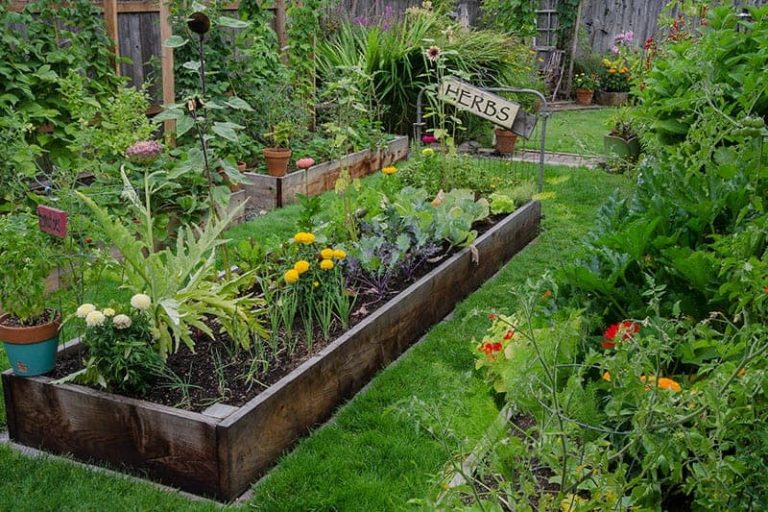Gardening and outdoor landscaping have evolved from simple hobbies to an integral part of sustainable living. More than ever, gardeners are seeking ways to harmonize their cultivation practices with the natural world. One key approach to achieving this balance is embracing organic gardening. Whether you’re tending a small herb garden on your windowsill or designing a lush, expansive outdoor space, transitioning to organic methods offers profound benefits not just for your garden, but for the environment as a whole. If you are considering a new strategy for your outdoor space or looking to refine your current approach, organic practices could be the game-changer you’ve been waiting for.
The Growing Demand for Organic Practices in Gardening
Over the last few decades, organic gardening has surged in popularity. This shift is largely driven by a growing awareness of the detrimental effects that conventional gardening methods can have on both the environment and our health. Traditional gardening often involves synthetic fertilizers, pesticides, and herbicides, which, while effective in the short term, pose a range of long-term risks. From soil degradation and water contamination to the loss of biodiversity, these chemicals can undermine the health of the garden itself.
Organic gardening, by contrast, avoids the use of synthetic chemicals, focusing instead on natural inputs and practices that work in harmony with the ecosystem. It prioritizes soil health, biodiversity, and ecological balance, leading to more sustainable and resilient gardens. This shift isn’t just a trend—it’s a necessity for anyone committed to a healthier, more responsible gardening approach.
Soil Health: The Foundation of Organic Gardening
At the heart of organic gardening is the concept of soil health. Healthy soil is the cornerstone of a thriving garden, and organic practices nourish the soil in ways that chemical alternatives cannot. Conventional fertilizers, while providing plants with immediate nutrients, often lack the broader range of micro-nutrients and beneficial organisms that are necessary for long-term soil vitality. Over time, these synthetic fertilizers can strip the soil of its natural structure and lead to erosion, poor drainage, and reduced fertility.
Organic gardening, on the other hand, focuses on enriching the soil through composting, mulching, and the use of organic fertilizers like manure and bone meal. These organic materials not only provide nutrients but also encourage the growth of earthworms, microbes, and fungi—all essential components of a healthy soil ecosystem. By supporting soil life, organic practices ensure that your garden remains fertile and productive year after year.
In addition to improving soil structure, organic practices can help prevent soil erosion, which is a growing concern in many parts of the world. The deep-rooted plants that are encouraged by organic gardening create a protective canopy that reduces water runoff and promotes better water retention. This helps reduce the need for irrigation and prevents the washing away of valuable topsoil.
Biodiversity: Enhancing the Health of Your Garden Ecosystem
Another key advantage of organic gardening is the promotion of biodiversity. By reducing the reliance on harmful chemicals, organic gardeners foster a diverse range of plants, insects, and wildlife. Biodiversity is vital for maintaining a balanced and resilient garden ecosystem. The presence of beneficial insects, such as ladybugs and bees, can naturally reduce the population of pests that might otherwise threaten your plants.
Moreover, organic gardens provide important habitats for pollinators, which play a critical role in the reproduction of many plants. In a time when pollinator populations are in decline, organic gardening is one way to create safe environments where bees, butterflies, and other pollinators can thrive. The beauty of organic gardening is that it doesn’t just benefit the plants you intentionally cultivate; it supports the wider web of life in your outdoor space.
Healthier Harvests: The Benefits of Organic Produce
One of the most compelling reasons to adopt organic gardening practices is the health benefits associated with growing your own food without the use of harmful chemicals. Conventionally grown produce often carries pesticide residues, which can pose risks to human health. These chemicals are absorbed by plants, and while washing can remove some of the residues, it is impossible to guarantee that all traces are gone.
By choosing organic gardening methods, you ensure that your crops are free from synthetic pesticides, herbicides, and fertilizers. Organic produce is not only safer for consumption but also often more flavorful and nutrient-dense. Studies have shown that organically grown fruits and vegetables tend to have higher levels of antioxidants and essential vitamins, which contribute to better overall health.
For those with dietary restrictions or sensitivities, organic gardening also allows for more control over the growing process, ensuring that your food is free from harmful chemicals that may exacerbate allergies or other conditions. Additionally, by growing your own food, you gain the satisfaction of knowing exactly what has gone into your plants, offering peace of mind for you and your family.
Sustainability: A Commitment to the Future
Organic gardening is a cornerstone of sustainable living. By adopting organic practices, you contribute to a more sustainable future for the planet. Organic methods reduce the environmental impact of gardening in several key ways. Firstly, they eliminate the need for chemical pesticides, which can leach into the groundwater and affect nearby ecosystems. Organic gardening also emphasizes crop rotation and polyculture, practices that prevent soil depletion and reduce the need for chemical inputs.
Additionally, organic gardening encourages the use of renewable resources, such as compost and mulch, which helps to close the loop on waste. Instead of relying on synthetic materials that often have a significant carbon footprint, organic gardeners use locally sourced, biodegradable alternatives. This shift towards renewable resources is crucial for mitigating the environmental impact of gardening, which in turn supports broader efforts to combat climate change.
Conclusion: A New Era of Gardening
Incorporating organic practices into your gardening and outdoor strategy is more than just a passing trend—it’s a meaningful shift towards more sustainable, resilient, and health-conscious living. From enriching the soil and enhancing biodiversity to providing healthier food and reducing environmental impact, the benefits of organic gardening are undeniable. As we face the challenges of a changing climate and the pressures of modern agriculture, organic gardening offers a way to take control of our outdoor spaces and make a positive contribution to the world around us.
Whether you are a seasoned gardener or a beginner, adopting organic practices can lead to profound changes in your outdoor strategy. By prioritizing soil health, nurturing biodiversity, and choosing organic methods, you are not only ensuring the longevity and vitality of your garden but also contributing to a brighter, more sustainable future for generations to come.















